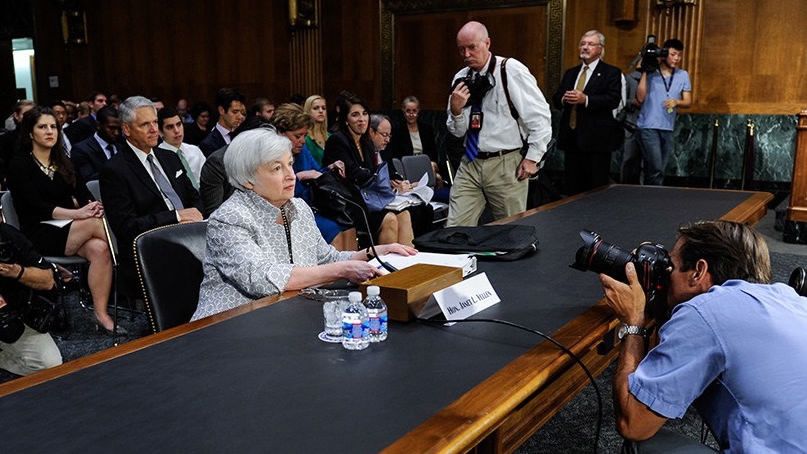
Business
18:02, 27-Jul-2017
Will low inflation affect Fed’s third rate hike in 2017?

By CGTN's Nick Harper
To most people, higher prices would seem like a bad thing. But the US Federal Reserve is worried a recent drop in inflation might point to new economic weakness, at a time when it's trying to push up interest rates, for this year and the next.
The current lower level of inflation in the US is below the Federal Reserve's two percent target, which gives Fed Chair Janet Yellen less wiggle room to raise interest rates.
Yellen listed some of the factors dragging the inflation rate down.
“For example, quality adjusted prices of cell phone plans plunged several months ago. So some temporary factors appear to be at work,” Yellen said.

Fed Chair Janet Yellen testifies before the United States Senate Committee on Banking, Housing, and Urban Affairs on July 13, 2017, when she implied that the Fed might slow down toward next rate hike. /money.163.com
Fed Chair Janet Yellen testifies before the United States Senate Committee on Banking, Housing, and Urban Affairs on July 13, 2017, when she implied that the Fed might slow down toward next rate hike. /money.163.com
Consumer spending, the biggest driver of the US economy, remains modest, and inflation has been cooling since February.
Even so, the Fed appears on track to squeeze in its third planned interest rate hike of 2017 at its final meeting of the year, in December. Some economists believe the lower inflation level shouldn't alter that plan.
“I don't think there's any variance because of inflation. When you look at the level of the federal funds rate and you look at the level of activity in the economy, it's very difficult to make the case for the federal funds rate to be below the inflation rate. Now how far above the inflation rate it should be is as they say a horse of an entirely different color,” said Chief US Economist Steven Blitz.

VCG Photo
VCG Photo
But the fear is that what Yellen sees as temporary factors hampering inflation may not be so transient. Asset management company Blackrock believes technological innovation is driving down prices, and in turn inflation.
That’s because mobile phones mean we buy online, rather than entering bricks and mortar stores. Apps offer us cheaper transport options than regular taxis, while steaming services are replacing the need for appliances like TVs and radios.
But economic growth is also proving an impediment to future rate hikes. This Friday's first figure for second quarter GDP isn't expected to be much of an improvement on the sluggish 1.4% growth in the first three months of this year.
Related stories:

SITEMAP
Copyright © 2018 CGTN. Beijing ICP prepared NO.16065310-3
Copyright © 2018 CGTN. Beijing ICP prepared NO.16065310-3